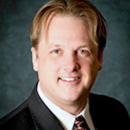Carrying forward U.S. Rep. Jim Ramstad’s Fight for Fair Access to Addiction, Mental Health Care

Hazelden Betty Ford lost a good friend and the nation a tremendous leader when former U.S. Rep. Jim Ramstad, a champion for recovery, passed away at his home in Wayzata, Minnesota. A celebration of his remarkable life was held Sunday.
Ramstad, who served in Congress for 18 years and advised our organization after retiring, was one of the most impactful recovery advocates in American history. Of his many accomplishments, he was proudest of spearheading passage of the Mental Health Parity and Addiction Equity Act (MHPAEA) of 2008, a groundbreaking federal law that requires insurance companies to pay equally for mental and physical health benefits, including addiction treatment. At the time of his death on Nov. 5, Ramstad was 74 and had been sober for almost 40 years. We wrote a tribute to the Congressman and were honored to share reflections for several media stories, including this interesting and detailed look back at the decade-long journey of the bipartisan MHPAEA from bill to law.
Despite the MHPAEA and other federal and state laws aimed at ensuring parity in insurance coverage, patients with substance use and mental health conditions still sometimes face inequities, often due to overly restrictive coverage criteria that fail to conform to accepted professional standards. Many advocates—including former U.S. Rep. Patrick Kennedy, Ramstad’s close ally on the parity issue—hope a recent class-action challenge to the practices of the largest U.S. health insurer will be an important step forward in judicial enforcement of parity laws.
Rejecting the insurer’s guidelines for coverage determinations as inconsistent with usual practices, the federal court in Wit v. United Behavioral Health (UBH) identified eight principles that define accepted standards of care. Just this past month, the judge ordered UBH to reprocess more than 67,000 wrongfully denied behavioral health claims; reform its handling of such claims; and
improve employee training—all under the watchful eye of a court-appointed “Special Master.” While UBH is fighting the court order and appealing last year’s initial decision, Kennedy and others are hopeful that if the judge’s decision and order are upheld, the case will have a broad, positive impact on insurance practices and enforcement of the MHPAEA.
In a webinar (password: Qja7JvMd) last week about the case’s game-changing potential, Kennedy—who now advocates for parity via his organization, The Kennedy Forum—forecasted that parity-enforcement legislation will also be introduced in the next Congress, and will honor Ramstad by carrying his name. We definitely look forward to learning more about that.
In the meantime, for this month’s Advocacy Update, we enjoyed interviewing Ramstad’s longtime chief of staff and our former Hazelden Betty Ford colleague, Dean Peterson, whose interesting perspective and insights are captured in a Q&A. Also in this month’s edition: Emily Piper provides a post-election roundup, and William C. Moyers poses some important questions for the incoming Administration.
Please let us know what you think, stay healthy and well, and if you’re observing holidays this month, enjoy the season. We are grateful for you, and will publish again early in 2021!
Share: Tweet | Facebook | LinkedIn
|


